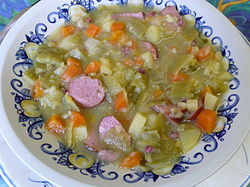.mw-parser-output .hidden-begin{box-sizing:border-box;width:100%;padding:5px;border:none;font-size:95%}.mw-parser-output .hidden-title{font-weight:bold;line-height:1.6;text-align:left}.mw-parser-output .hidden-content{text-align:left}You can help expand this article with text translated from the corresponding article in Luxembourgish. (May 2016) Click [show] for important translation instructions.
Machine translation, like DeepL or Google Translate, is a useful starting point for translations, but translators must revise errors as necessary and confirm that the translation is accurate, rather than simply copy-pasting machine-translated text into the English Wikipedia.
Do not translate text that appears unreliable or low-quality. If possible, verify the text with references provided in the foreign-language article.
You must provide copyright attribution in the edit summary accompanying your translation by providing an interlanguage link to the source of your translation. A model attribution edit summary is Content in this edit is translated from the existing Luxembourgish Wikipedia article at [[:lb:Bouneschlupp]]; see its history for attribution.
You should also add the template ((Translated|lb|Bouneschlupp)) to the talk page.
For more guidance, see Wikipedia:Translation.
This article includes a list of general references, but it lacks sufficient corresponding inline citations. Please help to improve this article by introducing more precise citations. (February 2013) (Learn how and when to remove this template message)
 | |
| Type | Soup |
|---|---|
| Place of origin | Luxembourg |
| Main ingredients | Green beans, potatoes, bacon, onions |
Bouneschlupp is a traditional Luxembourgish green bean soup with potatoes, bacon, and onions.[1][2]
Although Bouneschlupp is considered a Luxembourgish national dish, it can also be found in Saarland (Germany), Gaume, Arelerland (Belgium), and Lorraine (France).